Submitted by WA Contents
one-aftr converts old factory buildings into a fragmented cafe in South Korea
Korea, South Architecture News - Nov 03, 2023 - 15:07 4111 views

South Korea-based architecture studio one-aftr has converted old factory buildings into a fragmented, industrial-looking cafe in Jeonju-si, South Korea.
Named Dabang Café, the cafe is made up of structural elements such as golden mesh, steel, columns, roofs in a fragmented layout that offers an exploratory path to its visitors.
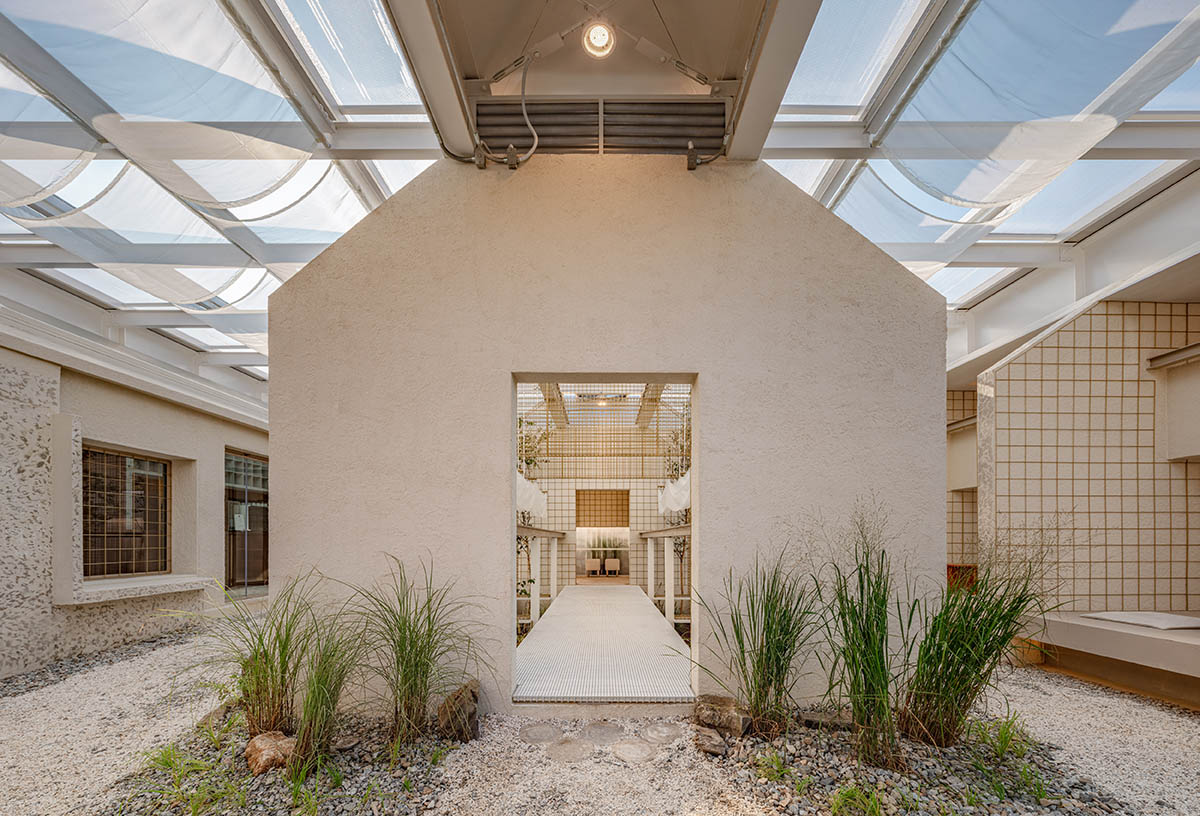
one-aftr converted the three old dormitory buildings into a new, pastel-toned cafe. The three buildings were exposed to a process of decay in years, according to the studio.

"The three little buildings, a roof, and a garden, just like us, plants grow and buildings age," said the studio.
"Concrete roof tiles fell into the building as purlins eroded and timber frames rotted away. Due to these structural damages, the roof opened up to the sky, and the floor reverted to earth."
"These three buildings, once used as a dormitory for factory workers, were abandoned as nearby factories closed. In a shrinking town, on a distressed building, humans were gradually replaced by wild plants."
"This decay gradually transformed the site into an interior garden, providing a sanctuary for plants," the office added.

The three rectangular-shaped buildings are situated parallel to one another. The thickest building on the northern side served as the home for the family who managed the dorm, while the other two slender buildings, one with three units in the middle.
The third building has four units and is situated on the southern end, which previously housed factory workers and their families.
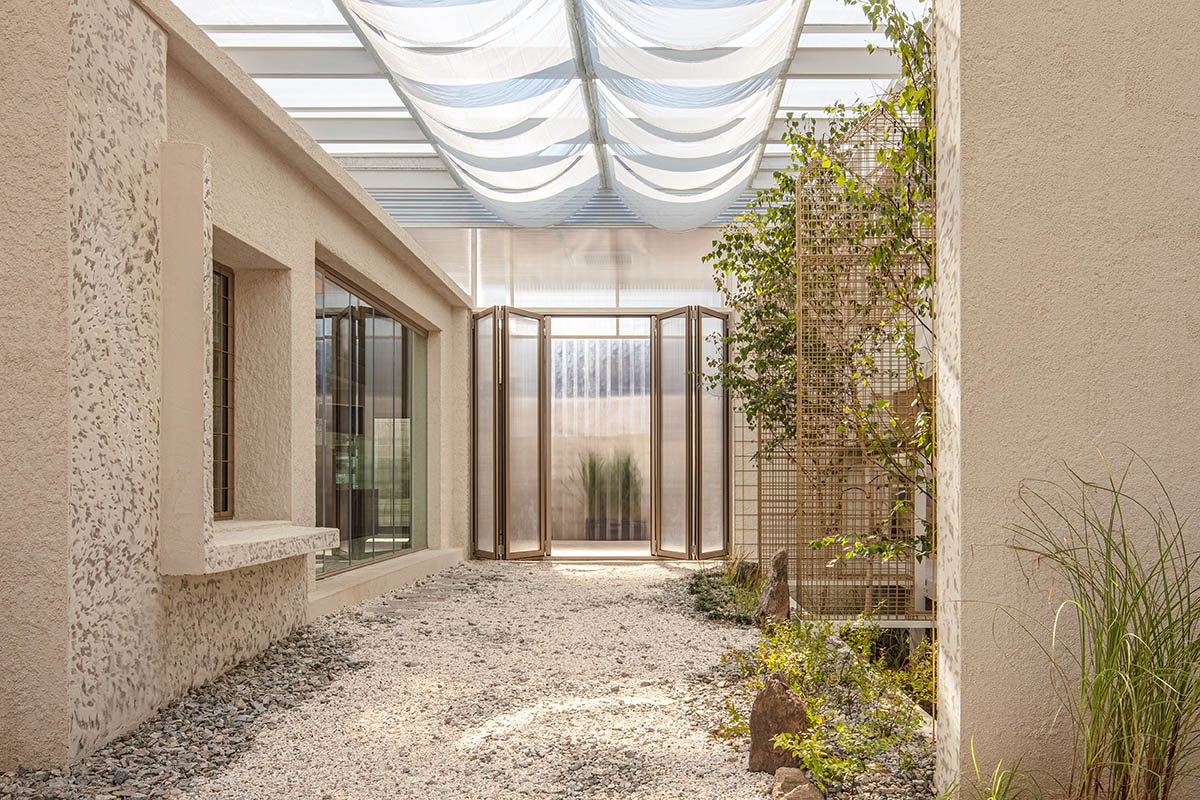
The small unit sizes, reaching 12 square metres, and the close proximity of the buildings, reaching 1.2 metres, made it impossible to fully preserve the existing structure for present-day use.
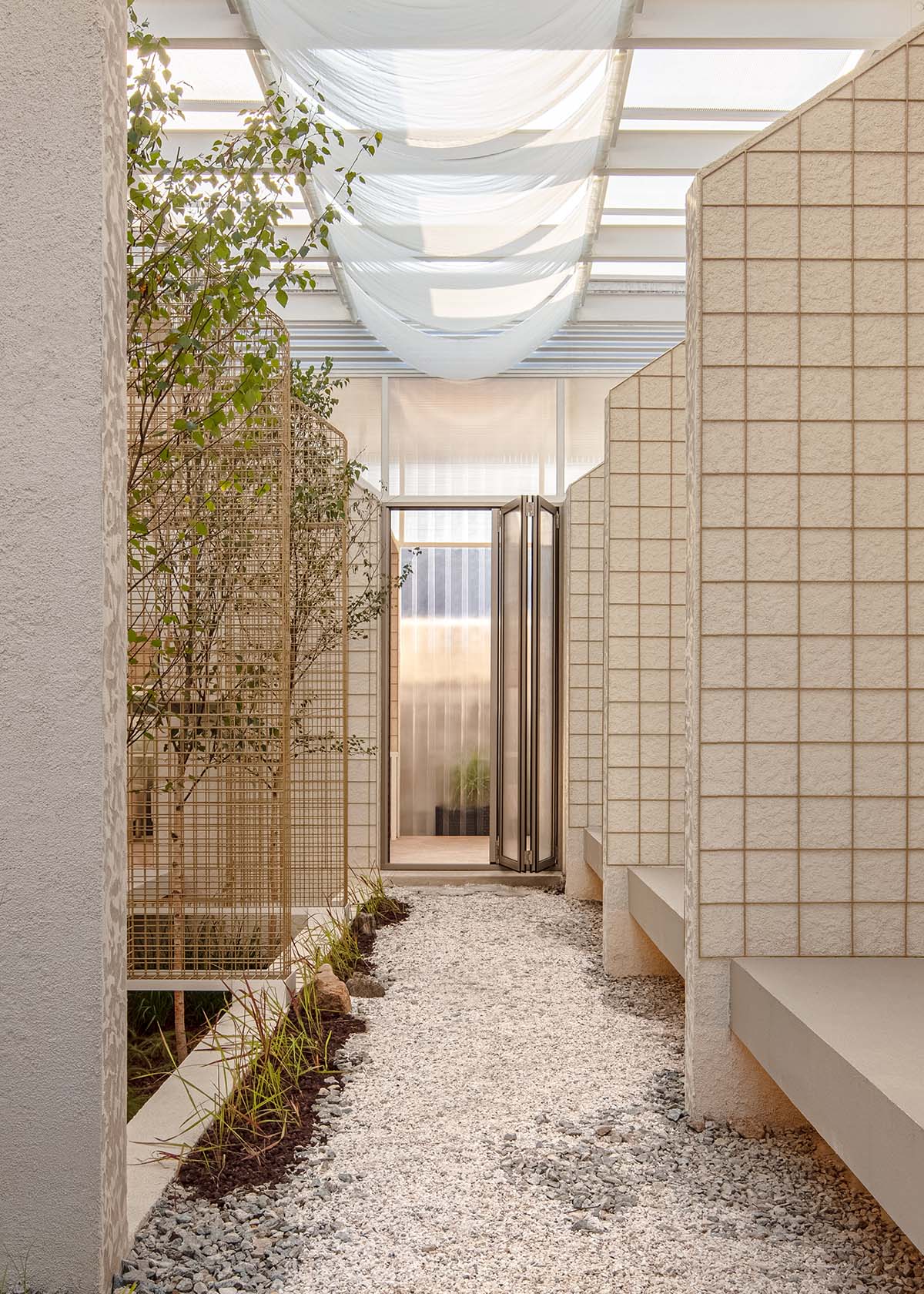
"In our effort to breathe new life into this site, we systematically demolished sections of the walls and roof to allow for better air circulation, sunlight penetration, opportunities for plant growth, and spaces for people to roam," said the office.
The studio also demolished the old sections of the walls and roof to liberate the existing building from its structural, MEP, HVAC burdens.

After partially deconstructing the buildings, the architects added new columns and roof structures. For instance, a cafe was placed on the northern building, this space was the only fully interiorized area, insulated and climate controlled, according to the design team.
In the middle building, all walls were removed except for the two exterior sides. The studio excavated the ground further to create a sunken garden, providing an open-air space for trees and grass to thrive.

The interior walls of the southern building were preserved, but the ones facing the middle building and the vacant lot were demolished. Those units were then transformed into raised floor seating.
To connect the existing buildings, the studio constructed an elongated pathway on the eastern end of the site.

From their gradual decay in the face of nature's forces to our deliberate efforts to breathe new life into this site, Dabang offers a sanctuary that integrates plants, humans, and the built environment.
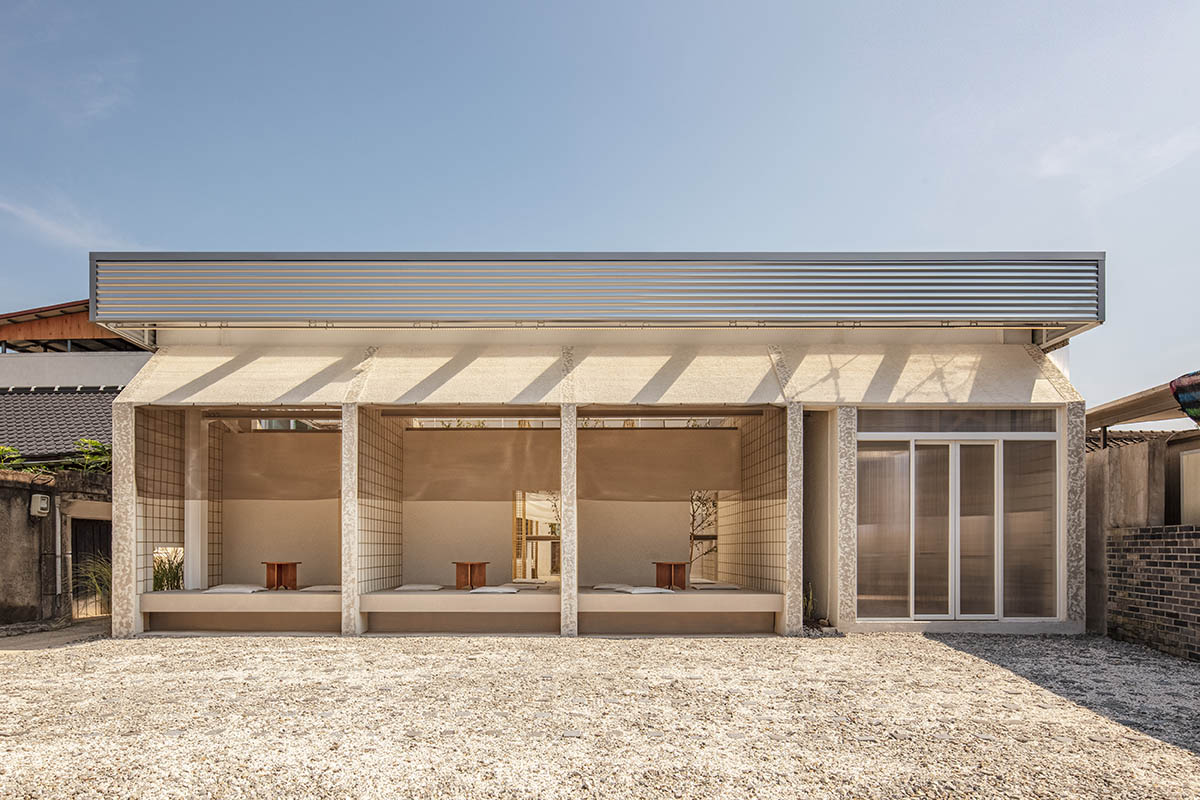


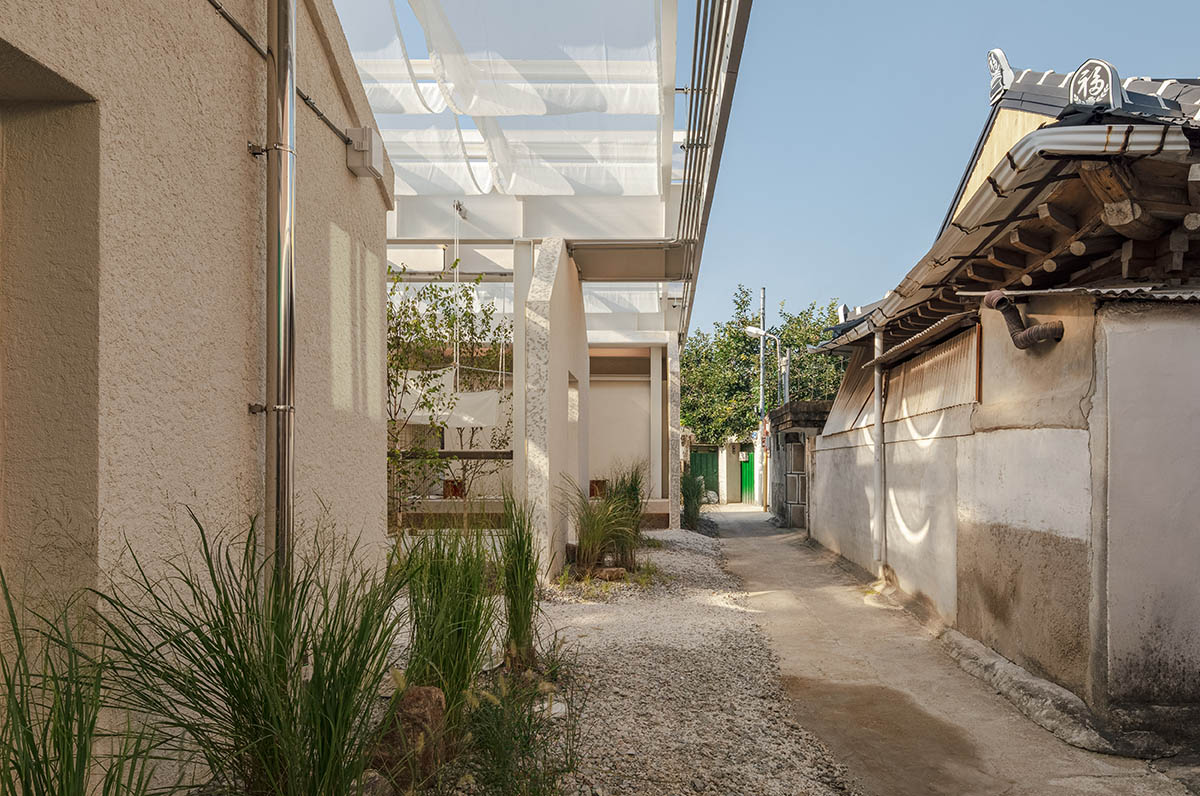

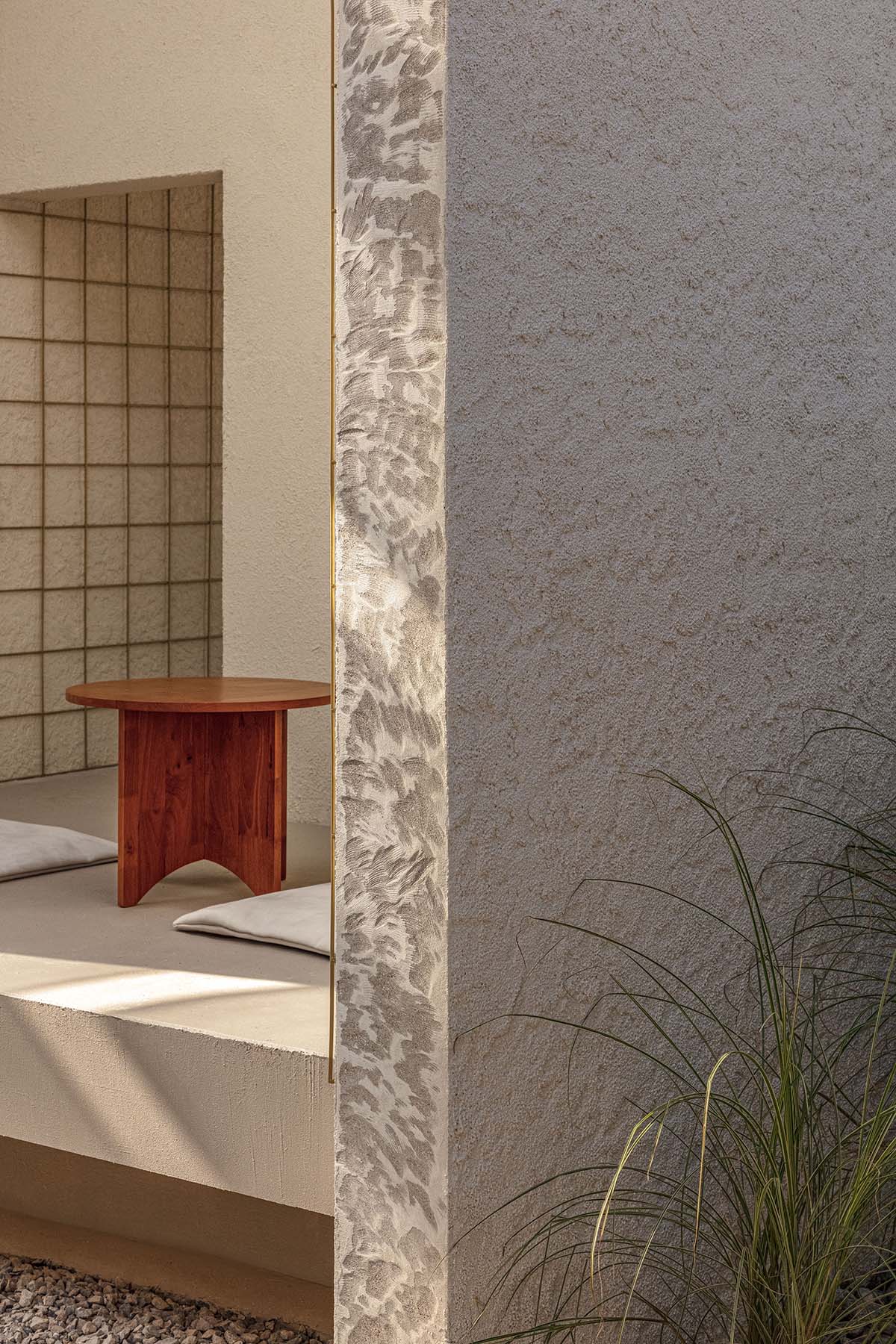
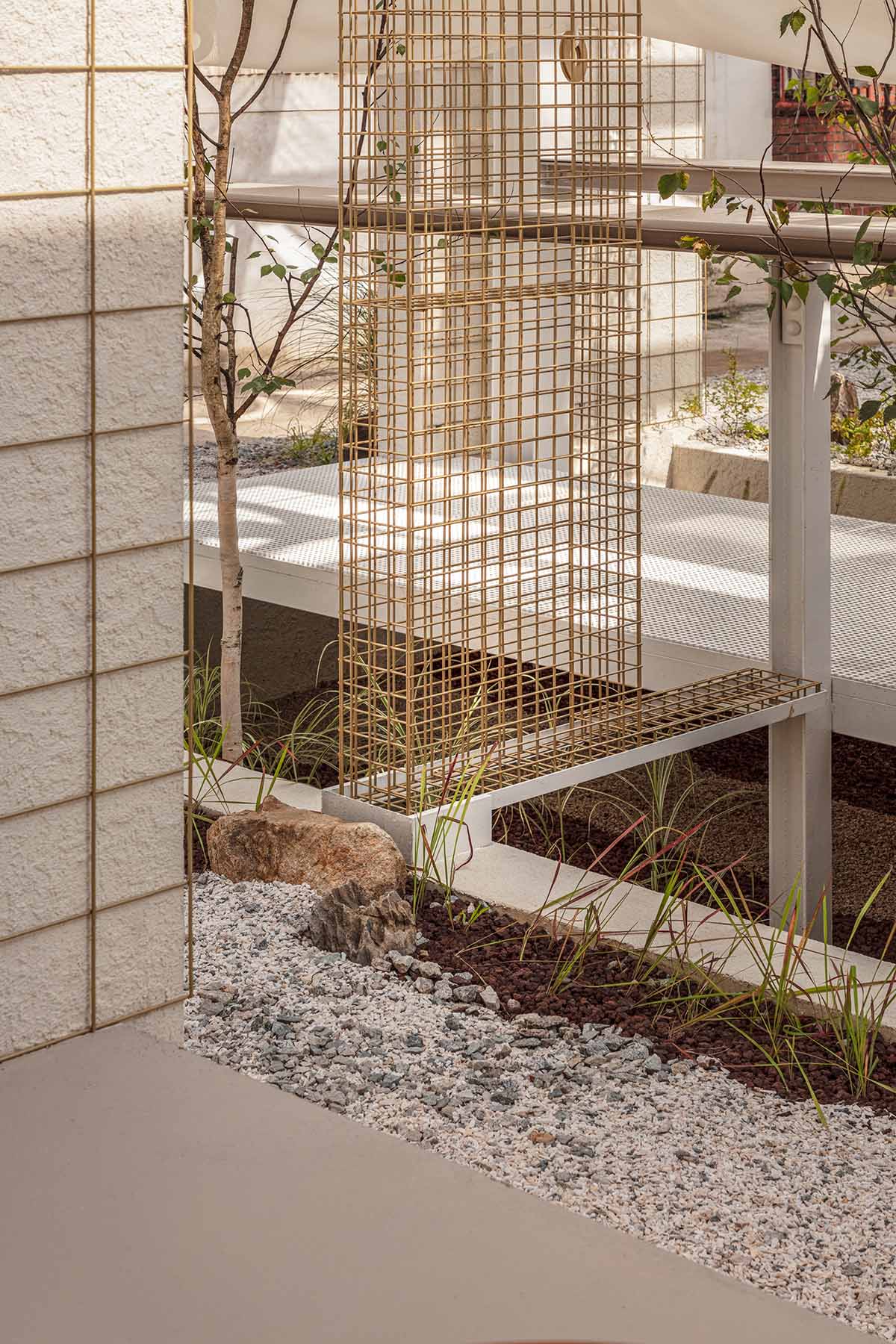



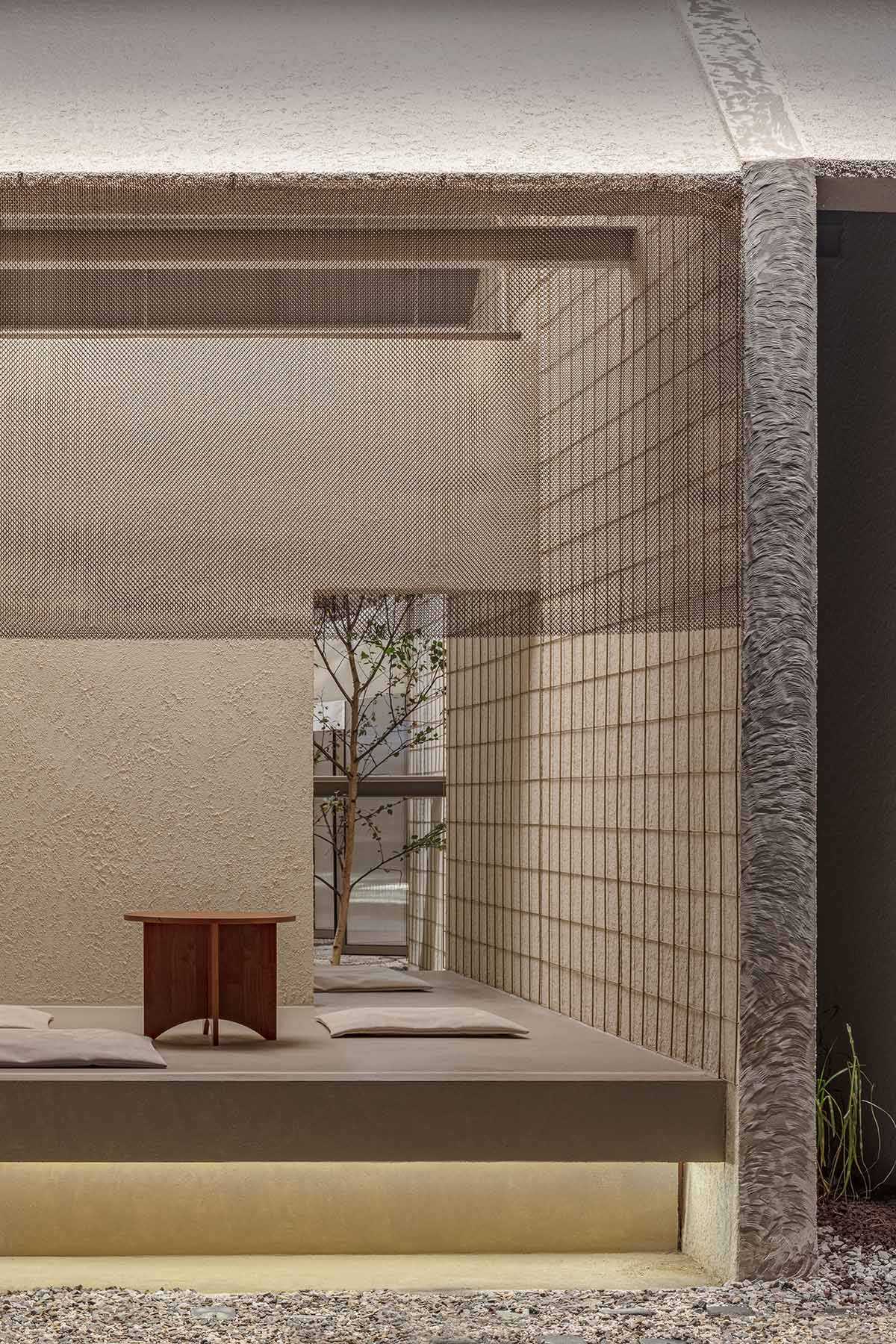

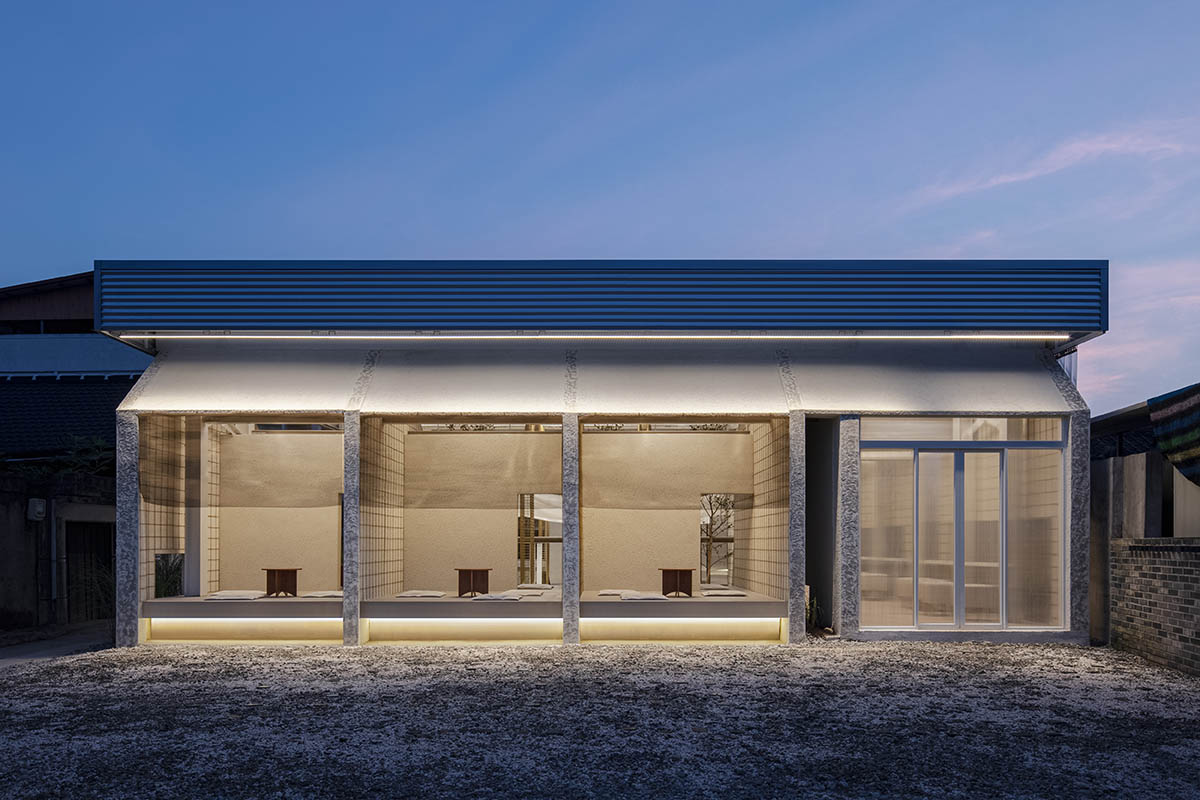

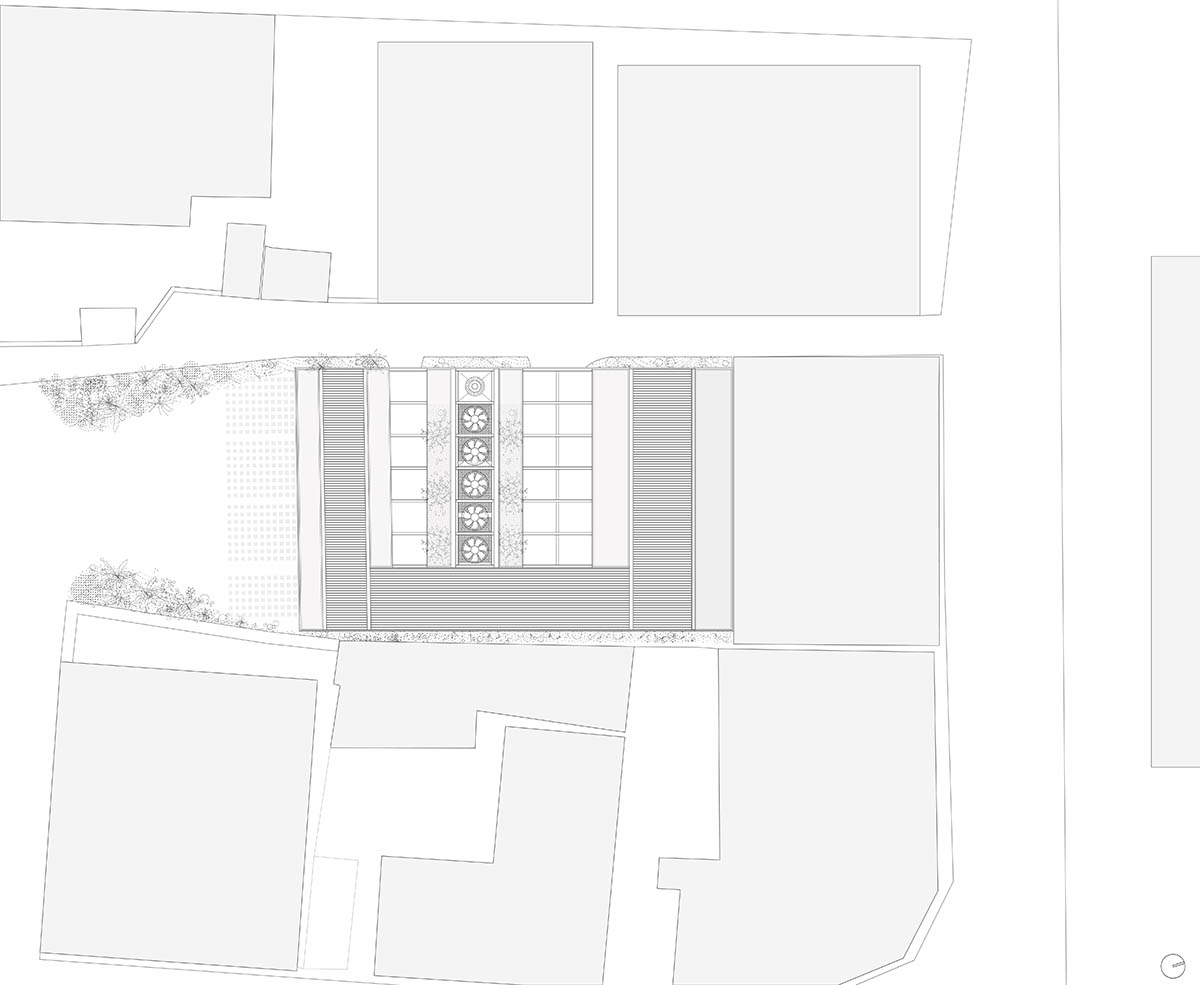
Site plan

Floor plan

Section
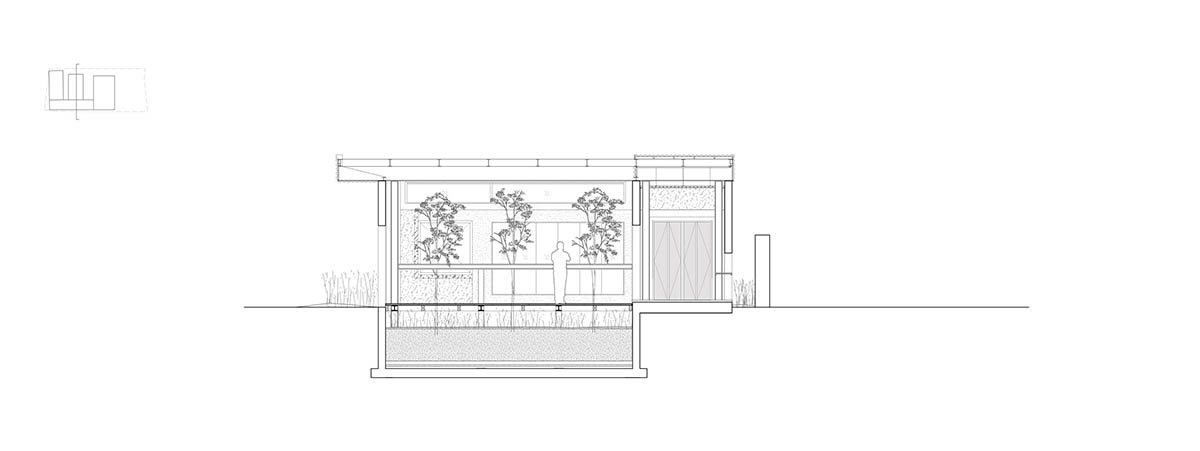
Section
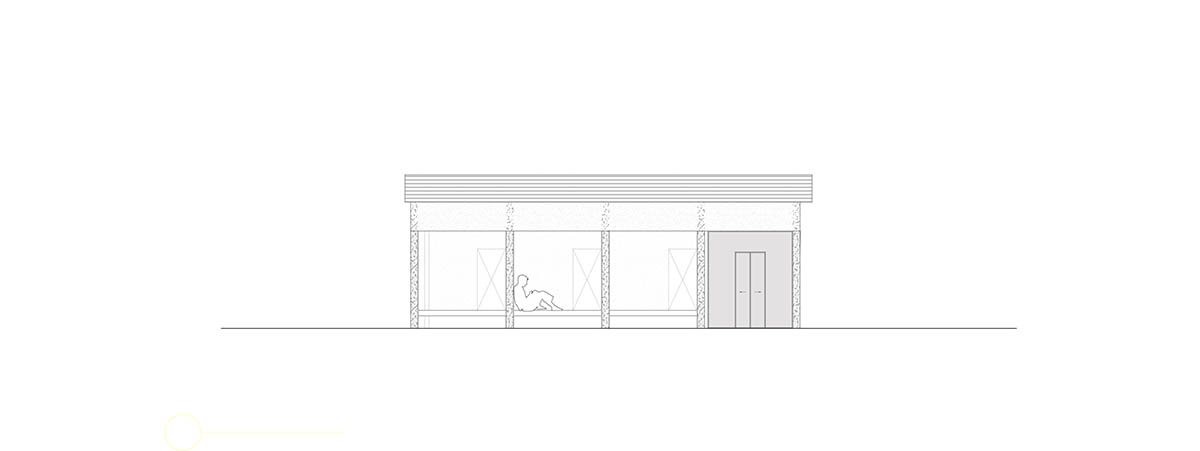
Elevation
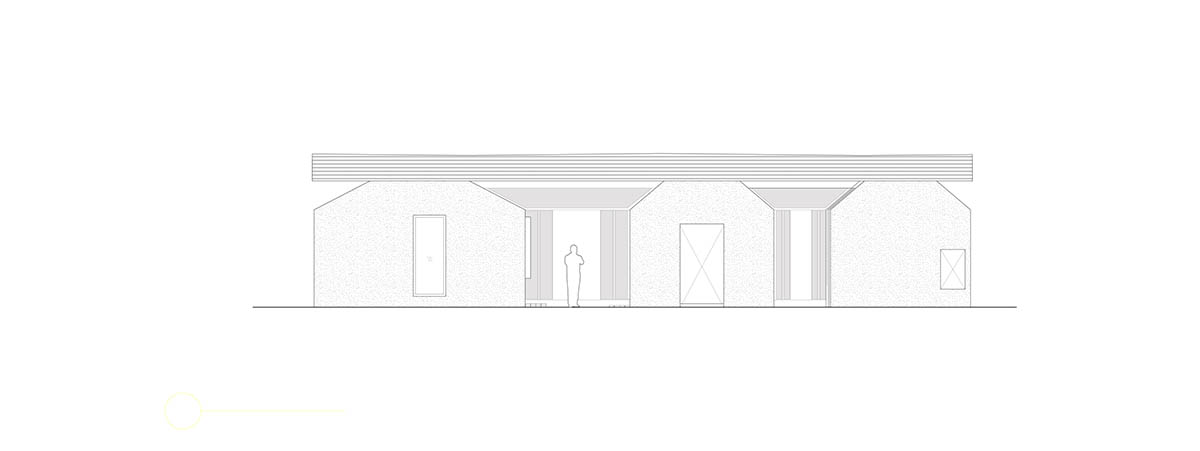
Elevation 2
one-aftr completed Doldam House, featuring a large orange-colored slit in one part of the building in South Korea.
one-aftr, led by Joon Ma and Ryu Ahn, was established to create a "collective good experience" in space. The firm uses the vagueness of 'good' as a driving force of our inquiries.
Project facts
Project name: Dabang Café
Architects: one-aftr
Design Team: Joon Ma, Ryu Ahn, Yoonha Lee, Bomi Son
Location: 303-22 Palbok-dong 1(il)-ga, Deokjin-gu, Jeonju-si, Jeollabuk-do, South Korea
Year: 2023
Client: City of Jeonju
All images © Jang Mi.
All drawings © one-aftr.
> via one-aftr
